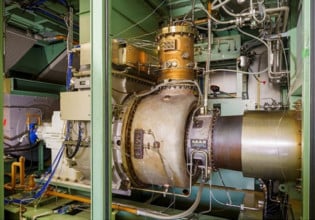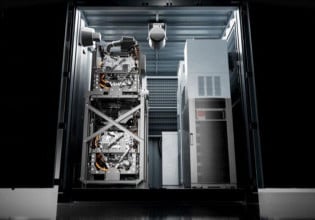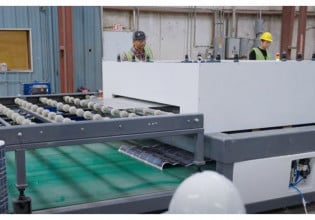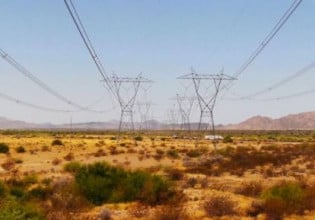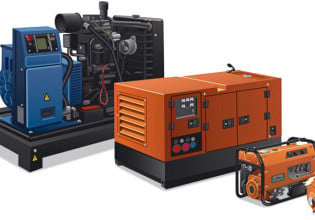Esstalion Technologies, Inc. a will soon begin testing the first prototype of a large-capacity energy storage system (ESS). The prototype has a capacity of 1.2 MW and can store 1.2 MWh, equivalent to the daily consumption of 23 Québec homes. This large-scale energy storage system will meet electricity demand during peak consumption periods and facilitate the integration of renewable energy onto the grid.
The prototype is made up of a container measuring 16.2 meters (53 feet) that consists of 576 battery modules, an inverter to convert the current, a transformer to adjust the storage system voltage to that of the grid, and control and protection equipment. The battery modules are manufactured by Sony and use Hydro-Québec's lithium iron phosphate technology. Using a container will allow the storage system to be moved by truck for quick on-site deployment.
The system will utilize Sony's control technologies for highly safe, reliable, olivine-type lithium-ion iron phosphate rechargeable batteries and highly scalable module systems, together with Hydro-Québec's operation and control technologies for electric power supplies as well as its lithium-ion battery material technology. By combining these strengths and performing the activities at a common location, the new company intends to research and develop a highly safe and reliable system for large-scale applications, as well as battery material technology suitable for use within electric power systems, and explore their use in a wide variety of applications, such as meeting excess demand during peak times, and the integrating renewable energy sources into power grids.
The "Esstalion" portion of the company's name is a hybrid term that combines "ESS" (for Energy Storage Systems), "Station" (as a venue for energy management), and "Lithium-ion," and represents energy storage systems for power grids that use lithium-ion battery technologies, the subject of the joint venture company's research and development.
“Sony's battery business possesses unique technological capabilities and Sony is committed to grow it, as well as the image sensor business, into a pillar of our device business. The key for the successful growth of Sony's battery business in the future will be the market for large-scale energy storage systems for power grids and, by using Hydro-Québec's wealth of knowledge and technological expertise as well as focusing on research development, I believe we will be able to produce results. Furthermore, we will strive to contribute to society and enrich people's daily lives by building and popularizing an extremely safe and reliable energy infrastructure, commented Tomoyuki Suzuki, EVP, Corporate Executive Officer, Device Solutions Business, RDS Platform, Sony Corporation.
“By combining Hydro-Québec's know-how in the operation and control of electric power systems as well as our lithium-ion battery material technology, together with Sony's expertise and leadership in rechargeable batteries and highly scalable module systems, we think we will succeed in developing a high-performance energy storage system for large-scale applications, as well as battery material technology suitable for use in power grids, added Thierry Vandal, President and Chief Executive Officer, Hydro-Québec
Tests will be carried out in summer 2015 to analyze storage system performance during charging and power and energy injection onto the grid. Initially, testing will be done on the low-voltage network of the Esstalion Technologies laboratory, set up at Hydro-Québec's research institute in Varennes, Québec. Trials will then be conducted on a 25-kV distribution test line at the research institute. This is a milestone for this joint venture, set up by Sony Corporation and Hydro-Québec in June 2014.


